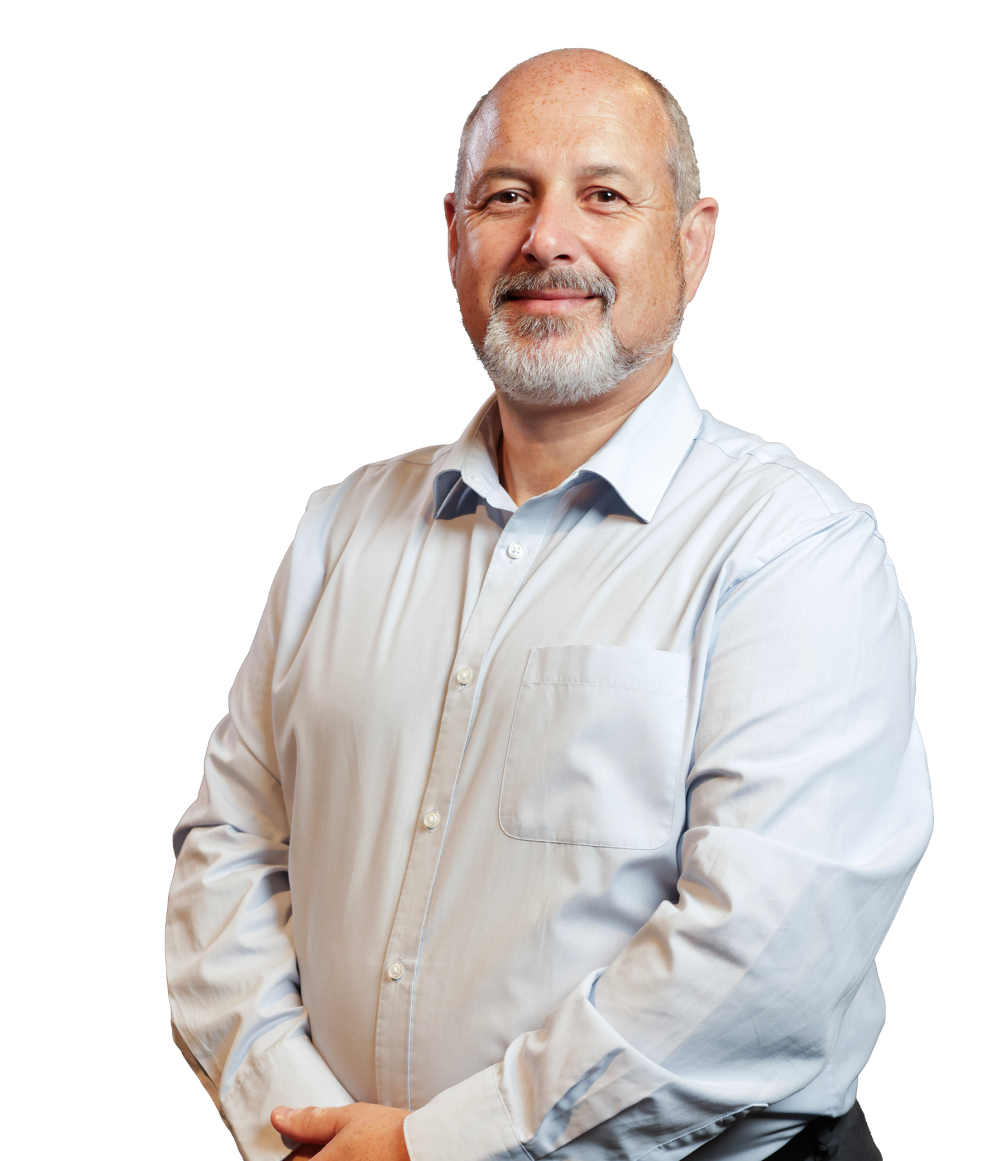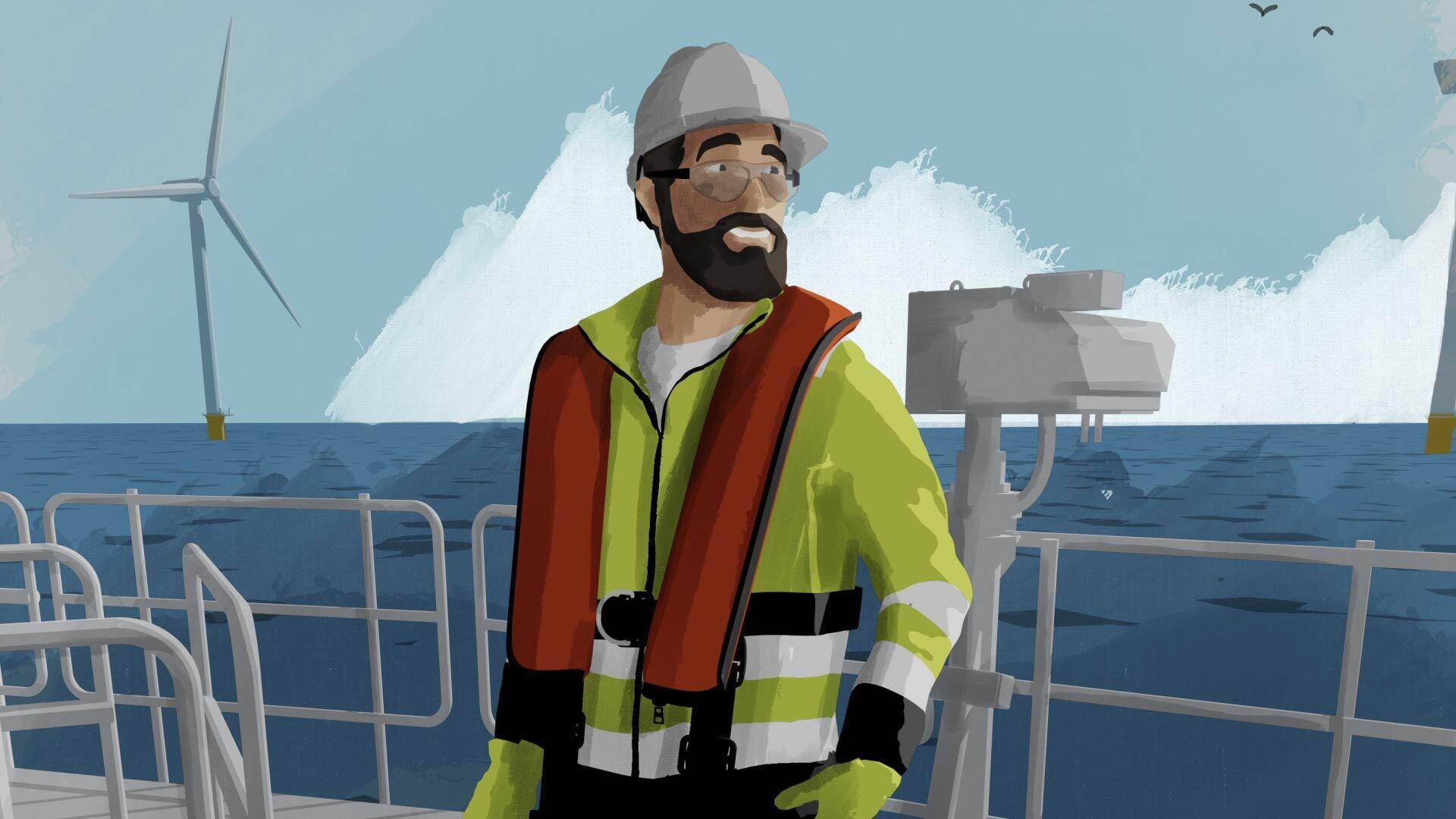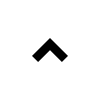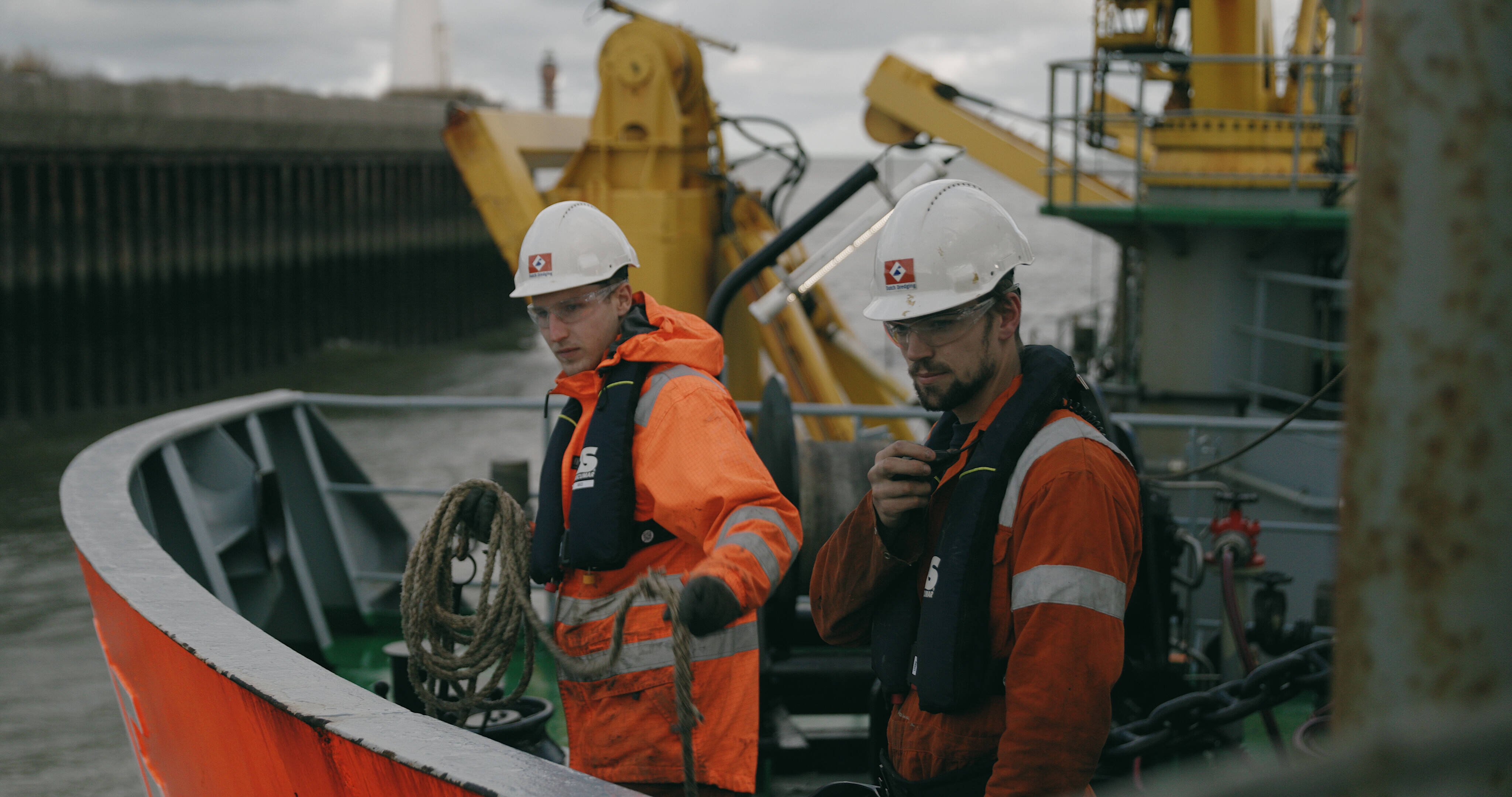
“Het weer is iets wat we niet kunnen beïnvloeden, maar we kunnen wel onze beslissingen beïnvloeden: doorgaan of pauzeren, afhankelijk van de omstandigheden”
Heb je nog tips voor dubbel-check?
Check jezelf. Ben je geschikt om te werken? Ken je de procedures? Hoe is je uitrusting? Vraag jezelf af: doe ik het goed? Wat kan er misgaan? Neem even de tijd – 5 of 10 seconden – voordat je in actie komt. Die pauze kan het verschil betekenen tussen een verwonding of erger.
Wat houdt jullie veiligheidscampagne in?
We hebben bij Ecowende een virtuele veiligheidsambassadeur geïntroduceerd: Lex. Zijn boodschap als rolmodel: check jezelf, je collega's en het werk voordat je begint. Hij brengt serieuze veiligheids boodschappen op een herkenbare en leuke manier. Lex heeft zijn eigen e-mailadres waar mensen hun zorgen kunnen uiten of vragen kunnen stellen. Hij is toegankelijk en effectief. Ik hoop dat Lex een blijvende indruk gaat achterlaten. Lex is nu al een succes en de collega's nemen hopelijk straks zijn tips en lessen ook mee naar andere projecten en sectoren. Het gaat er uiteindelijk om dat de veiligheidsboodschap blijft hangen. En dat lukt goed met Lex!
Tot nu toe hebben we geen ernstige incidenten gehad, wat mij doet vermoeden dat mensen bewuster en alerter zijn. De feedback over Lex is top. Mensen vragen al wanneer de volgende Lex-video komt. De communicatiestijl en het verhaal spreken mensen aan, vooral ook bij kleinere organisaties die niet over de middelen of veiligheidsexperts beschikken.

Wat is jouw veiligheidsboodschap?
Onze boodschap bij Ecowende is simpel: mensen moeten heelhuids naar huis komen en we accepteren geen schade aan het milieu. We zorgen er voor dat mensen in een zo veilig mogelijke omgeving kunnen werken, met de beste schepen, getrainde collega’s en de juiste werkwijzen. Als we iets niet veilig kunnen doen, doen we het simpelweg niet. Veiligheid is goed voor de organisatie: projecten met de beste veiligheidsresultaten zijn vaak gerealiseerd binnen de tijd en budget.
Wat maakt het werken op zee uitdagend?
De zee is ruig en onvoorspelbaar. Elke dag is anders, geen dag is hetzelfde. Ik heb in 35 landen gewerkt en alle oceanen bevaren, ook tijdens mijn tijd bij de Koninklijke Marine. Ik heb de ellende gezien, de kracht die de zee kan uitoefenen op een schip. Het weer kunnen we echt niet beïnvloeden, maar we kunnen wél onze beslissingen beïnvloeden: doorgaan of pauzeren, afhankelijk van de omstandigheden.
Noodplannen voor offshore-situaties moeten robuust zijn. Iemand per helikopter evacueren van een varend schip is complex en de eerste paar uur na een incident zijn cruciaal. We vermijden daarom risicovolle taken in afgelegen gebieden en plannen proactief om de responstijden te halen.
Het gaat in mijn werk niet om statistieken, KPI's, scorekaarten en PowerPoint-presentaties. En dat zie ik nog veel te veel bij HSSE. Een project wordt weleens beoordeeld op het aantal incidenten dat zich heeft voorgedaan. En dan moet je die informatie ook nog eens krijgen. Maar als je rondloopt op een schip of op de kade en je ziet hoe mensen zich gedragen, hoe ze met elkaar omgaan, hoe ze communiceren en voor elkaar zorgen, dan weet je dat je het goed doet. Mijn visie op veiligheid is gebaseerd op de zorg voor mensen en het creëren van een realistische veiligheidscultuur.
“Ik zeg tegen mensen niet dat ik voor Shell of Ecowende werk. Ik vertel dat ik werk voor jouw vrouw, je kinderen, je moeder, je vader. Om ervoor te zorgen dat jij veilig thuiskomt”
Mijn naam is Scott Jardine. Ik ben HSSE-manager voor Ecowende, het offshore windproject. Ik werk voor Shell en ben op dit moment gedetacheerd bij Ecowende.
Dit project is wellicht het meest innovatieve en uitdagende project waaraan ik in de afgelopen 30 jaar aan heb gewerkt. Ik probeer mijn jarenlange ervaring en kennis van de traditionele olie- en gasindustrie te combineren en toe te passen in de windindustrie. Er zijn een hoop jonge, enthousiaste, slimme mensen betrokken bij het project, maar natuurlijk ook oudere mensen zoals ik met wat meer ervaring. Door de combinatie van verschillende culturen is het een heel interessante plek om te werken.
Wat is je persoonlijke drijfveer als veiligheidsmanager?
Helaas heb ik in mijn 30-jarige carrière in de offshore incidenten meegemaakt waarbij mensen niet meer heelhuids thuiskwamen. Ik heb meegemaakt wat de impact is op degenen die achterblijven wanneer je te maken hebt met een incident met fatale afloop of een ongeluk waarbij iemand blijvend letsel oploopt. Die ervaring is wat mij elke dag motiveert. Ik zeg tegen mensen dat ik niet voor Shell of Ecowende werk. Ik werk voor jouw vrouw, je kinderen, je moeder, je vader. Om ervoor te zorgen dat jij veilig thuiskomt.
veilig werken op zee!
Doe mee met Veilig Werken op Zee en help ons de belangrijke boodschap over veiligheid verder te verspreiden. We zijn op zoek naar bedrijven, schepen en werknemers die hun ervaringen willen delen. Jouw verhaal kan anderen inspireren en bewust maken van de cruciale rol die veiligheid speelt in ons werk. Of je nu een succesverhaal hebt of een les geleerd uit een bijna-ongeval, jouw bijdrage kan het verschil maken. Vul het formulier in en sluit je aan bij onze missie om de zee een veiligere werkplek te maken voor iedereen.



Wat houdt jullie veiligheidscampagne in?
We hebben bij Ecowende een virtuele veiligheidsambassadeur geïntroduceerd: Lex. Zijn boodschap als rolmodel: check jezelf, je collega's en het werk voordat je begint. Hij brengt serieuze veiligheids boodschappen op een herkenbare en leuke manier. Lex heeft zijn eigen e-mailadres waar mensen hun zorgen kunnen uiten of vragen kunnen stellen. Hij is toegankelijk en effectief. Ik hoop dat Lex een blijvende indruk gaat achterlaten. Lex is nu al een succes en de collega's nemen hopelijk straks zijn tips en lessen ook mee naar andere projecten en sectoren. Het gaat er uiteindelijk om dat de veiligheidsboodschap blijft hangen. En dat lukt goed met Lex!
Tot nu toe hebben we geen ernstige incidenten gehad, wat mij doet vermoeden dat mensen bewuster en alerter zijn. De feedback over Lex is top. Mensen vragen al wanneer de volgende Lex-video komt. De communicatiestijl en het verhaal spreken mensen aan, vooral ook bij kleinere organisaties die niet over de middelen of veiligheidsexperts beschikken.
Heb je nog tips voor dubbel-check?
Check jezelf. Ben je geschikt om te werken? Ken je de procedures? Hoe is je uitrusting? Vraag jezelf af: doe ik het goed? Wat kan er misgaan? Neem even de tijd – 5 of 10 seconden – voordat je in actie komt. Die pauze kan het verschil betekenen tussen een verwonding of erger.
“Ik zeg tegen mensen niet dat ik voor Shell of Ecowende werk. Ik vertel dat ik werk voor jouw vrouw, je kinderen, je moeder, je vader. Om ervoor te zorgen dat jij veilig thuiskomt”
Wat is jouw veiligheidsboodschap?
Onze boodschap bij Ecowende is simpel: mensen moeten heelhuids naar huis komen en we accepteren geen schade aan het milieu. We zorgen er voor dat mensen in een zo veilig mogelijke omgeving kunnen werken, met de beste schepen, getrainde collega’s en de juiste werkwijzen. Als we iets niet veilig kunnen doen, doen we het simpelweg niet. Veiligheid is goed voor de organisatie: projecten met de beste veiligheidsresultaten zijn vaak gerealiseerd binnen de tijd en budget.
Wat maakt het werken op zee uitdagend?
De zee is ruig en onvoorspelbaar. Elke dag is anders, geen dag is hetzelfde. Ik heb in 35 landen gewerkt en alle oceanen bevaren, ook tijdens mijn tijd bij de Koninklijke Marine. Ik heb de ellende gezien, de kracht die de zee kan uitoefenen op een schip. Het weer kunnen we echt niet beïnvloeden, maar we kunnen wél onze beslissingen beïnvloeden: doorgaan of pauzeren, afhankelijk van de omstandigheden.
Noodplannen voor offshore-situaties moeten robuust zijn. Iemand per helikopter evacueren van een varend schip is complex en de eerste paar uur na een incident zijn cruciaal. We vermijden daarom risicovolle taken in afgelegen gebieden en plannen proactief om de responstijden te halen.
Het gaat in mijn werk niet om statistieken, KPI's, scorekaarten en PowerPoint-presentaties. En dat zie ik nog veel te veel bij HSSE. Een project wordt weleens beoordeeld op het aantal incidenten dat zich heeft voorgedaan. En dan moet je die informatie ook nog eens krijgen. Maar als je rondloopt op een schip of op de kade en je ziet hoe mensen zich gedragen, hoe ze met elkaar omgaan, hoe ze communiceren en voor elkaar zorgen, dan weet je dat je het goed doet. Mijn visie op veiligheid is gebaseerd op de zorg voor mensen en het creëren van een realistische veiligheidscultuur.
Mijn naam is Scott Jardine. Ik ben HSSE-manager voor Ecowende, het offshore windproject. Ik werk voor Shell en ben op dit moment gedetacheerd bij Ecowende.
Dit project is wellicht het meest innovatieve en uitdagende project waaraan ik in de afgelopen 30 jaar aan heb gewerkt. Ik probeer mijn jarenlange ervaring en kennis van de traditionele olie- en gasindustrie te combineren en toe te passen in de windindustrie. Er zijn een hoop jonge, enthousiaste, slimme mensen betrokken bij het project, maar natuurlijk ook oudere mensen zoals ik met wat meer ervaring. Door de combinatie van verschillende culturen is het een heel interessante plek om te werken.
Wat is je persoonlijke drijfveer als veiligheidsmanager?
Helaas heb ik in mijn 30-jarige carrière in de offshore incidenten meegemaakt waarbij mensen niet meer heelhuids thuiskwamen. Ik heb meegemaakt wat de impact is op degenen die achterblijven wanneer je te maken hebt met een incident met fatale afloop of een ongeluk waarbij iemand blijvend letsel oploopt. Die ervaring is wat mij elke dag motiveert. Ik zeg tegen mensen dat ik niet voor Shell of Ecowende werk. Ik werk voor jouw vrouw, je kinderen, je moeder, je vader. Om ervoor te zorgen dat jij veilig thuiskomt.

“Het weer is iets wat we niet kunnen beïnvloeden, maar we kunnen wel onze beslissingen beïnvloeden: doorgaan of pauzeren, afhankelijk van de omstandigheden”

Doe mee met Veilig Werken op Zee en help ons de belangrijke boodschap over veiligheid verder te verspreiden. We zijn op zoek naar bedrijven, schepen en werknemers die hun ervaringen willen delen. Jouw verhaal kan anderen inspireren en bewust maken van de cruciale rol die veiligheid speelt in ons werk. Of je nu een succesverhaal hebt of een les geleerd uit een bijna-ongeval, jouw bijdrage kan het verschil maken. Vul het formulier in en sluit je aan bij onze missie om de zee een veiligere werkplek te maken voor iedereen.
veilig werken op zee!
een veilige en productieve plek voor iedereen"
